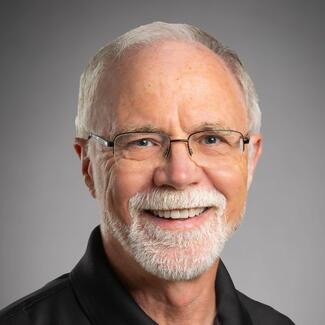DNR Confusion Poses `Public Safety Concern`
March 13--Confusion over living wills and "Do Not Resuscitate" orders among doctors, nurses and paramedics has created a national public safety risk, a top medical researcher says.
The warning follows a Herald report on what one hospital executive called a "misunderstanding" after an elderly man was labeled as DNR shortly before he died at Melrose-Wakefield Hospital.
"This is a nationwide public safety concern," said Dr. Ferdinando L. Mirarchi, emergency medicine director at the University of Pittsburgh Medical Center Hamot. "My research today shows that essentially the documents are misunderstood and they're misunderstood on a nationwide scale."
Mirarchi said when he was a resident, a patient almost died because he incorrectly assumed her living will was a DNR order. He said doctors and nurses learn about DNR and living wills on the job.
"There's no regulation put in place or standard put in place as far as how people are educated when it comes to these documents," he said. "If I had my wish list, this would be taught in medical schools and this would be basically a requirement for licensure at this point in time by all the providers -- nurses, social workers, physicians, paramedics, EMTs."
Dr. Gina Jervey Mohr, palliative medicine director at Loma Linda University Health, said health professionals often assume DNR orders end treatment.
"That's something that really bothers me," said Mohr. "We'll be giving a DNR patient a blood transfusion or actively treating an infection and I'll have a nurse or another doctor say, 'Why are we giving them blood? They're DNR.' Their thought is DNR means no treatment. And that's not what it means. It only means don't give CPR. But if you talk to 10 other doctors, you'll get 10 other answers."
Sandra Furrier, who had been given the power to make medical decisions for her 85-year-old Wakefield father, Arthur Fairfield, said she consulted with her dad before signing orders for life-preserving care about a month before he died.
She accused Melrose-Wakefield Hospital of labeling her dad as DNR without her authorization and contrary to her written directives shortly before he died of complications from infections on July 20.
The Herald reviewed nearly 2,000 pages of hospital records in the case and found a nurse practitioner labeled Fairfield as DNR after she reported speaking with Furrier the day her father died.
"Later on Sandra seems somewhat more composed, as well as upset by the realization that her father continues to decline," the nurse practitioner wrote. "She admits that she would not want him ventilated again and I confirmed that if he got worse we would not intubate him or resuscitate him."
Furrier insists she never approved a DNR order and said she told the nurse practitioner if her father wound up on life support again with no chance of recovery, then she would not prolong his life on machines.
Furrier also said she never requested hospice care despite a nurse's note that states the nurse practitioner told her Furrier wanted to take her father home with hospice care "but she wasn't ready to discuss this further."
A hospital executive sent a letter to Furrier apologizing for the "misunderstanding" after Fairfield died.
A hospital spokesman has repeatedly denied Herald interview requests for those involved in Fairfield's case. The spokesman referred the Herald to a previous statement that says Furrier ordered the DNR through the nurse practitioner, which superseded the written orders for life-sustaining care.
The state Board of Registration in Nursing, which licenses nurses, is investigating the incident.
Mohr, who did not treat Fairfield and could not comment on his case, said there is confusion surrounding DNR orders and hospice care.
"One of the biggest myths people think is that when you go into hospice, you have to be DNR," she said.
"About 99 percent who are in hospice care are DNR, but it's not a requirement."
Doctors must do a better job explaining when CPR may do more harm than good for those with terminal illnesses, Mohr said.
"The thing physicians are taught the least is communication," she said.
"It's really frightening. It's the most important thing we do and we do it really poorly. I'm not just conveying facts about your dad's terminal illness. I also have to read the emotional and verbal cues you give me, but if I misread those, I've missed the point. Without that communication, these forms are worthless and there will be misunderstandings."
Copyright 2016 - Boston Herald















